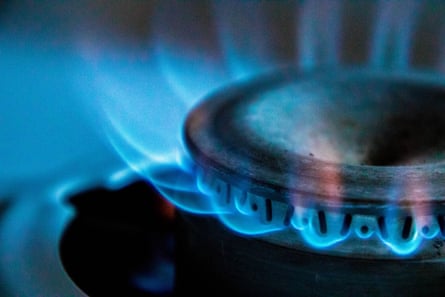Midwinter energy price increases should be abolished to protect households from unaffordable bills “at the worst possible time”, according to a coalition of leading charities.
Charities and campaign groups have called on Ofgem, the energy regulator, to scrap future January bill increases as it prepares to raise the cap on energy prices by 5% from Monday.
The cap, which is updated every three months, reflects how much a typical household would pay for its energy if the new rate were applied for a full year – but bills can be higher if households use more than the national average.
The cost of gas and electricity will rise from an average of £1,834 a year for the typical household (as set in October’s update), to £1,928 a year from January.
Simon Francis, coordinator of the End Fuel Poverty Coalition, said: “Ofgem needs to abolish this January price hike.” He added that the “cruel impact” of a change in bills at this time of year cannot be overestimated.
“Struggling households are facing an assault from all sides,” he said. “Energy bills are going up just as winter bites hard, Christmas debts have to be paid off and the wider cost of living crisis continues into another year.”
The End Fuel Poverty Coalition is one of the groups behind the Warm This Winter coalition of more than 40 charity and campaign groups that is calling on Ofgem to end January bill increases.
 View image in fullscreenGlobal gas prices have risen since the start of the Israel-Hamas war. Photograph: NORRIE3699/Getty Images/iStockphoto
View image in fullscreenGlobal gas prices have risen since the start of the Israel-Hamas war. Photograph: NORRIE3699/Getty Images/iStockphoto
Ofgem said it would raise the cap after a rise in global gas market prices since the start of the Israel-Hamas war in October. An Ofgem spokesperson said the price cap has helped to protect consumers from a volatile gas market but “remains a blunt instrument in a changing energy sector, and the way it works may need to change in the future so customers continue to be protected”.
Warm This Winter has called on the government to do more to help struggling households. Fiona Waters, a spokesperson for the coalition, said: “We need to see the UK government introduce an emergency energy tariff for vulnerable households and a help-to-repay scheme for those in energy debt.”
“Failure to avert this cold homes crisis will lead to pressure on the NHS, a mental health catastrophe and additional winter deaths caused by living in cold, damp homes,” she said.
Paul Nowak, the general secretary of the Trades Union Congress (TUC), said: “Energy bills are already 50% higher than two years ago, so today’s rise will just hammer households even harder in the coming year.”
“No one should struggle to get by in one of the richest countries in the world. But 13 years of wage stagnation and cuts to social security have left millions badly exposed to sky-high bills this winter,” Nowak added.
The TUC has called on ministers to follow the lead of governments that have invested in publicly owned clean energy alternatives to fossil gas, and upgrade the energy efficiency of homes, to help keep a lid onenergy bills.
“The UK is feeding foreign firms’ profits and subsidising cheaper bills abroad while British households struggle to heat their homes and pay their bills,” Nowak said.
A government spokesman said it recognised “the cost-of-living challenges families are facing”, and that the government offered support to three million vulnerable households including grants of £150 through the warm home discount, £900 for those on means-tested benefits, and an extra £150 for disabled people.


